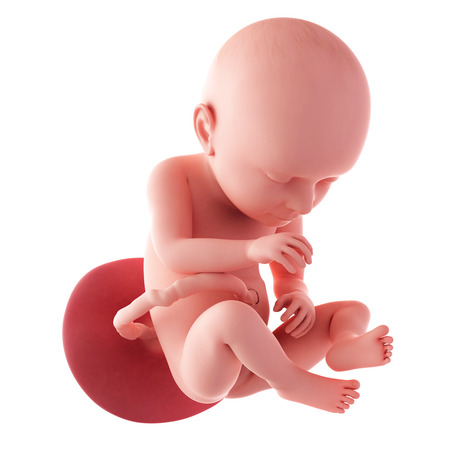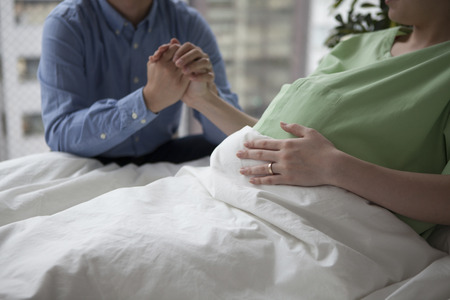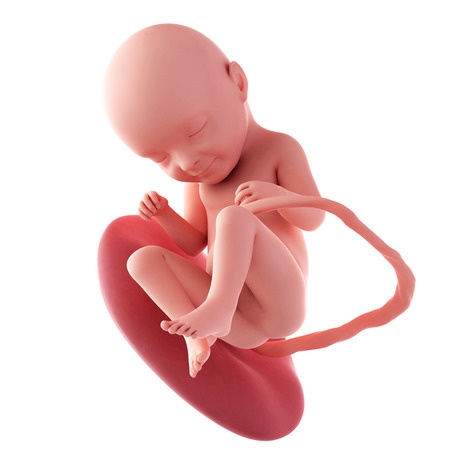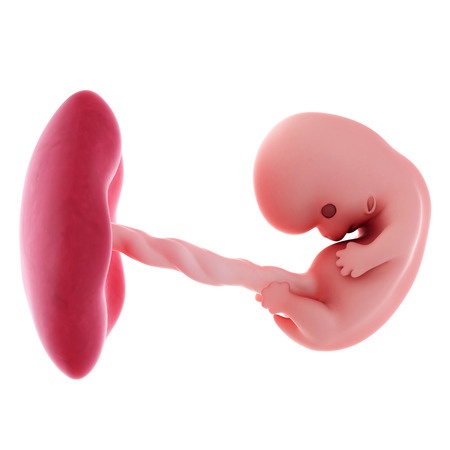37 Weeks Pregnant
Greetings! With week 37, you are now into the ninth and final month of your pregnancy. Your baby is considered as full term if he/she is born after the week 39. After you have crossed the 36 weeks pregnant period, the baby has excellent survival rates outside the womb, occasionally with some assistance. The mother’s womb is the best incubator for a baby where he grows and matures completely so the longer the baby stays inside, the better is his development. This week, at 37 weeks pregnant, your baby is as big as a watermelon weighing almost 2.85 kg and 19 inches tall.
How Your Baby is Growing This Week?

This week the baby is preparing for survival outside the womb. The antibodies from maternal blood are passing through the umbilical cord to the baby. These will provide the baby with immunity and the ability to fight microorganisms entering the body.
The layers of fat piling beneath the skin are making your little one look chubby and fat dimples are beginning to form at the elbows and knees. The weight gain however has slowed down compared to the previous weeks. Now the baby will put on only 150-200 grams per week. So, depending on when your baby is born, his birth weight will vary between 2.5 to 3.5 kg. At the time of birth the diameters of the head, shoulders, and hips is the same. This is because it will help the baby to pass easily through the vaginal tract.
The motor skills of the baby are improving and his hand-eye coordination enables him to grasp the umbilical cord and even play around with it. The lungs are now fully mature and can function independently. The vital organs are functioning in sync with each other like they will after birth.
Changes in Your Body at 37 Weeks Pregnant

This week you are physically and mentally preparing yourself for the task that lies ahead of you, delivery and labor. With just a couple of weeks remaining according to your pregnancy calculator, it’s good to know about the symptoms in advance as it will reduce your anxiety when the day actually arrives.
In these last few weeks, you may notice the following early pregnancy symptoms which indicate onset of labor or early labor:
- As the baby descends down into the pelvis and the head gets fixed into the pelvic cavity, the pressure and discomfort you felt in your upper abdomen is relieved and the heartburn and breathlessness tend to get lesser. This is called “lightening” and generally happens a few weeks before labor starts.
- You may feel uterine contractions which are called Braxton hicks contractions or false labor pains. These contractions are a sign of pre-labor stage. At this time, the cervix ripens and gets ready for actual labor.
- Mucus plug is present within the opening of the cervix. Passing of mucus plug is another indication of initiation of labor. You may feel it in the form of mucus and bloody discharge per vagina.
- Breaking of the water bag is a commonly heard term in the final weeks. It indicates rupture of the sac that holds the baby and leaking of the amniotic fluid. It can begin as leaking of clear watery fluid or a sudden gush. It is often the first sign that pregnant women notice and it indicates the onset of labor. At this stage you need to rush to the hospital immediately.
Your abdomen is now distended to its maximum. From the time you were 6 months pregnant, the muscles have stretched a lot. This causes breaks in the layers of the skin and gives rise to stretch marks.
Week 37 Pregnancy Signs and Symptoms
You are 37 weeks pregnant and now, your body is preparing in multiple ways for childbirth and you may begin to experience some of the early signs of labor. These signs of pregnancy indicate that your baby will arrive in the next few days. Pregnancy week by week symptoms change very slightly at this stage.
- Pain in the lower abdomen
- Braxton Hicks contractions
- Round ligament pains
- Discharge of mucus and blood per vagina
- Feeling of pressure in the lower abdomen
- Dry itchy skin
- Cramps in calf muscles
- Oedema of hands and feet
- Constipation
- Varicose veins
- Insomnia
- Headaches
- Fatigue
- Mood changes
- Frequent urination
- Increased vaginal discharge
- Waddling gait
- Forgetfulness
- Strange Dreams
- Hemorrhoids
- Stretch marks all over your pregnant belly
- Breast enlargement
- Yellowish discharge from the nipple
- Increased pigmentation of skin
Diagnostic Tests and Ultrasound Results in Week 37 of Pregnancy
At 37 weeks pregnant, if your doctor recommends an ultrasound, you can see your baby moving his limbs and breathing. The other parameters that will be checked at this time are cervix length, placental blood flow, heart rate of the baby. Also the presentation of the baby that is vertex or breech will be noted in your reports.
At this stage ultrasound is not routinely done unless there is some indication. It can be useful to check the presence of cord around neck or for External Cephalic version in a breech baby.
During your antenatal visit, the doctor will do an internal examination (PV- Per Vaginal examination) to check the dilatation of the cervix. With the onset of labor, the cervix begins to open up. This is called dilatation (opening up of cervix) and effacement (thinning of the cervix). With each uterine contraction, the cervix opens up and thins out at the same time. This opens up the birth canal for the baby to come out.
Pregnancy Health Tips

- Learn all that you need to know about labor and the pain management options. It will help you prepare in advance and also reduce your anxiety.
- Keep a check on the number of movements per day. If you do not feel the baby move for four hours then contact your doctor.
- Drink plenty of fluids and avoid taking sugary carbonated drinks and restrict the caffeine intake.
- Keep your hospital bag ready in advance.
- Do not indulge in any home practices for inducing labor pains like castor oil, taking ghee etc. Always stick to medical advice only.
- Prepare meals in advance and buy your home supplies so that when you are back from the hospital, you will have everything ready.
- Keep a watch for any change in the vaginal discharge. If you feel the discharge has increased, you could be leaking amniotic fluid (rupture of water bag) and you need to rush to the hospital immediately.
- Do your pregnancy exercises like Kegel’s regularly two to three times a day.
<<< 36 Weeks Pregnant | 38 Weeks Pregnant >>>



